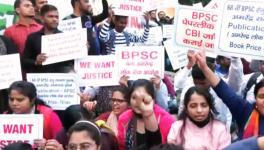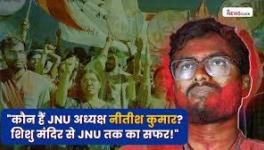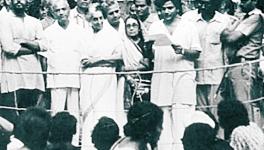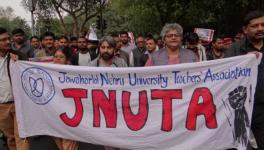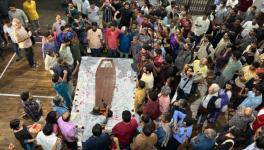JNU Again: Sole Teachers’ Rep Barred from Academic Council Meet
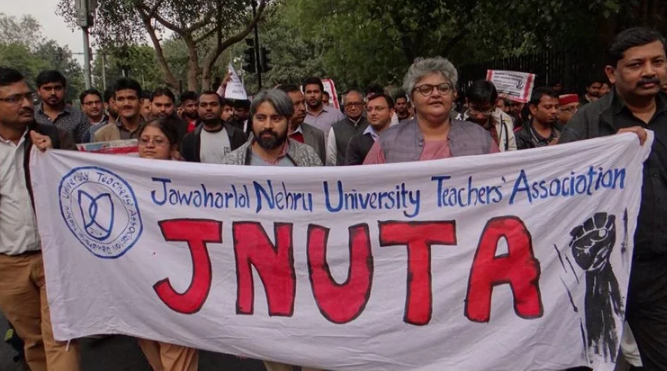
Stoking yet another controversy, the Jawaharlal Nehru University (JNU) administration on Tuesday denied professor Avinash Kumar, the secretary of the JNU Teachers Association permission to attend the university’s 152nd Academic Council meeting on the campus.
Kumar is the sole representative of the teachers scheduled to attend this meeting which was expected to take important decisions regarding the introduction of new academic programs, admission norms for the next session, modalities to conduct examinations and other crucial matters.
Kumar told Newsclick that the convention in JNU is for the president and the secretary of the Teachers’ Association to be invited to the Academic Council meeting. The university however stopped inviting the secretary without giving any reason. “Our president Atul Sood had said that I will represent teachers at this meeting. I was allowed to enter the hall and register my attendance but within a few minutes I was told that I cannot attend it,” he says.
He was told the instructions of the “highest authority” led to his ouster from the hall. “We are still gathering information on what resolutions were being passed in the meeting,” he says.
Other members of the Council were severely critical of the incident. Professor Sachidanand Sinha, who represents the School of Social Sciences in the Council boycotted the meeting. He told NewsClick, “The incident reveals that the university administration does not have any regard for democratic voices and that the Vice-Chancellor wants only yes-men to execute his work.”
Sinha also says that the secretary of the Teachers’ Association went to the meeting only after the registrar was informed in advance about the president’s absence. “As soon as I learned of the incident, I did not even register my attendance and wrote a dissent letter which says it is not right treat a teacher’s representative this way,” he says. “The modus operandi of the administration is to blatantly discard dissenting voices. The minutes of the previous meeting simply mentioned the number of dissenting people—the numerous issues we have been raising were simply not put on the record.”
Sinha says that dissenting voices are constantly scuttled by the present JNU administration. “The Teachers Association’s president and secretary were part of the Campus Development Council, but they were suddenly stopped from attending these meetings.”
A statement issued by the teacher’s body notes that several important functions of the Council were given to hand-picked committees. For instance, the computer-based online multiple-choice questions system for JNU entrance exam has already cost academic life dearly.
The body further alleges that the decision of the JNU administration to declare the establishment of a new School of Indian Traditional Music and Dance on 31 July 2019, without bringing the matter to the Academic Council is a blatant violation of JNU statutes, ordinances, and best practices.
It says, “A committee was set up by the Vice-Chancellor for the purpose (of starting the new school) without any consultation in the Academic Council, and especially the faculty from the School of Arts and Aesthetics, which is already mandated to cover the areas of dance and music as part of its Masters, MPhil and PhD programs.
“The committee, without any wider consultation, has submitted its one-page recommendation in haste without any substantive academic reasoning, rationale, objective and design for the new school. It surprisingly recommends that the school shall offer an integrated five-year Bachelors-to-Masters programme. Such a drastic deviation from the approved and mandated pattern of teaching and learning in JNU has been done without any consultation and it speaks in volume about the authoritative functioning by the JNU administration.”
The teachers of the premier university were in confrontation with the administration after it issued a ‘charge sheet’ to 48 teachers for participating in a two-day strike last year. However, the action of the university was stayed by the Delhi High Court in August.
Get the latest reports & analysis with people's perspective on Protests, movements & deep analytical videos, discussions of the current affairs in your Telegram app. Subscribe to NewsClick's Telegram channel & get Real-Time updates on stories, as they get published on our website.











